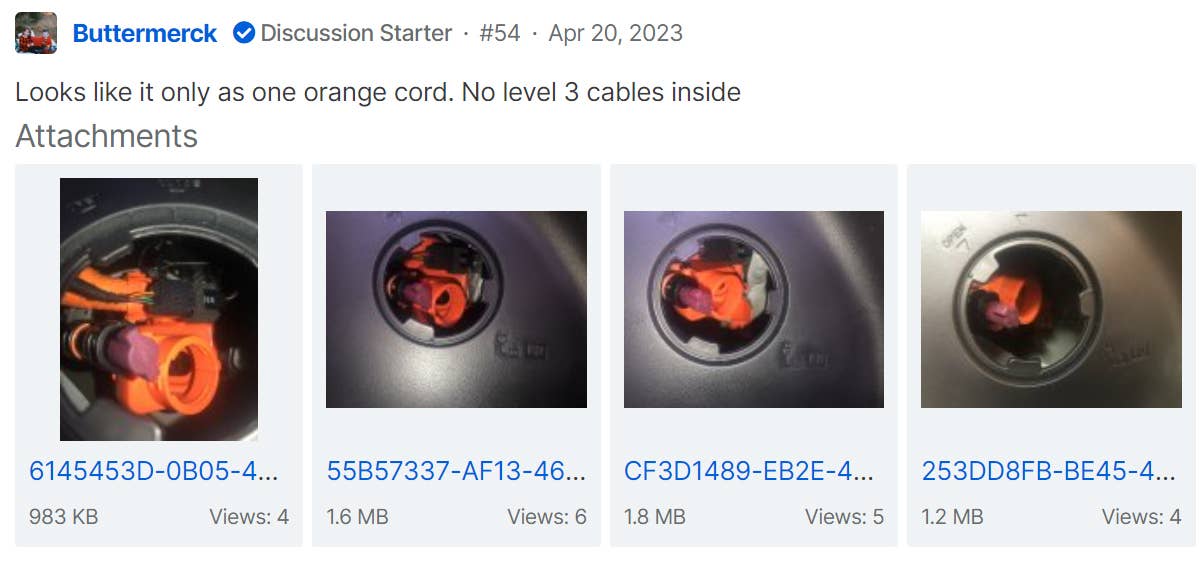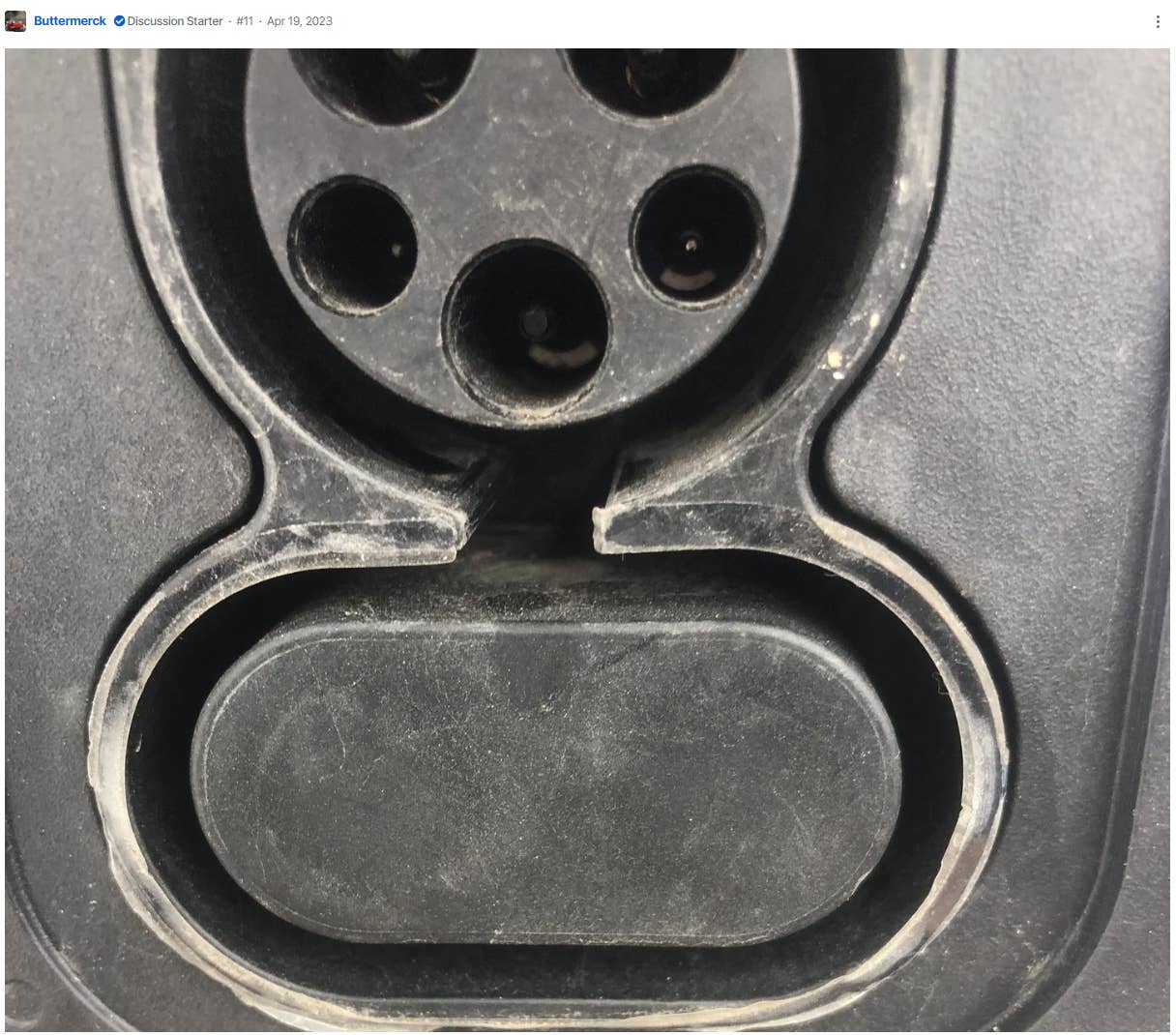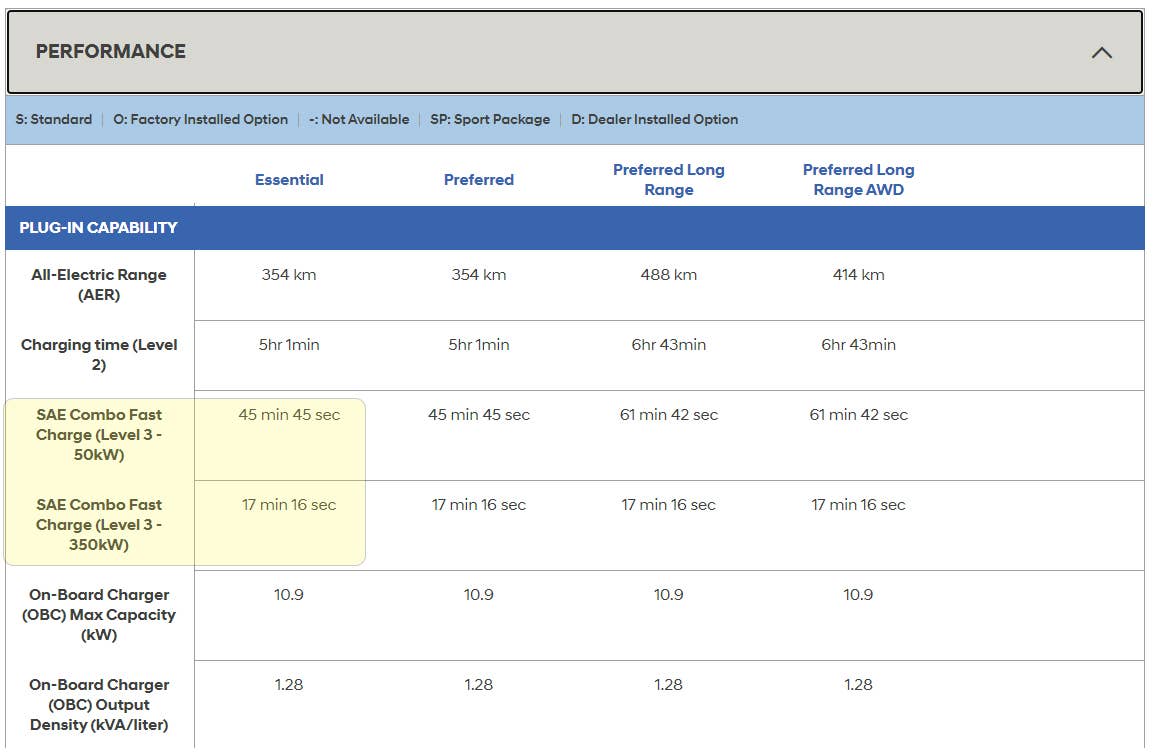Interestingly, that was not the case. What Buttermerck unknowingly acquired was the most basic version of the Ioniq 5 ever produced: the Essential trim.
Essentially, the 2022 Ioniq 5 Essential was a compliance vehicle exclusively available in Canada. The key term here is “was,” as Hyundai discontinued the Essential trim after only selling 30 units for the 2022 model year. Hyundai officially stated to The Drive that they “adjusted [their] packaging strategy for model year 2023 to better cater to the demands of Canadian consumers.”
When it was available, the Ioniq 5 Essential was priced at $44,999 CAD ($33,200 USD) prior to the addition of a $1,825 destination fee. This was $1 below the previous maximum eligibility threshold for Canada’s iZEV credit. In April 2022, the Canadian government raised the lower limit of the iZEV credit purchasing threshold to $55,000, which meant that the extremely affordable Essential trim could potentially no longer be available while buyers could still qualify for the iZEV credit.
We have previously discussed compliance vehicles. Notably, Tesla had a similarly peculiar stripped-down version of its Model 3 with a range of just 94 miles. This model also retailed for—you guessed it—$44,999 CAD. Tesla, like Hyundai, has since halted sales of this variant.
The Ioniq 5 Essential lacked features such as a heat pump, battery heater, and rapid charging capability—trimming enough features to lower the price and make higher trims eligible for Canada’s iZEV credit. After scrutinizing the archived spec sheet formerly available on Hyundai Canada’s website, it became evident why there was confusion among some forum members. Hyundai’s initial marketing material for the Ioniq 5 line featured charging times for SAE Combo (CCS) charging.
Hyundai lays out the various trims and distinctions on a product card. A representative for Hyundai Canada informed The Drive that the features and specifications of the trims are “clearly delineated” on the product card, serving as the primary point of reference at dealerships for bothThe customers as well as the team at the dealership.” The details on the product card show that the Ioniq 5 Preferred, being the second base trim, includes the “EV Ultra Fast Charger,” however, it doesn’t explicitly clarify that the Essential trim is unable to utilize a CCS charger. This lack of clarity might have caused confusion, especially within online discussion forums.
Hyundai’s initial promotional materials showed CCS fast charging times for the Essential trim
In addition to facing issues with the charging situation, Buttermerck also seems to have paid a significant premium for the Ioniq 5. The original post reveals that they ended up paying $54,000 CAD ($39,900) after a $10,000 government rebate, which sets the vehicle’s price at around $64,000 CAD ($47,260 USD). This amounts to a striking $17,176 CAD ($12,683) above the initial MSRP of the vehicle before any government incentives.
Now, we understand. Compliance cars should ideally not be necessary, and the system being manipulated by OEMs for funding is a murky issue. Ultimately, it is the consumer who bears the brunt of it, which isn’t an ideal introduction to experiencing EVs for the first time. However, Hyundai and the dealership ought to have been more transparent with this owner. It seems like there was a shared responsibility in this situation.
The positive news is that it appears the buyer might be making headway in arranging to exchange the vehicle with their local dealership. A spokesperson from Hyundai Canada informed The Drive that Buttermerck was engaging in discussions with the dealership, wherein they currently have an Ioniq 5 model that supports fast charging. It’s currently uncertain if there will be a complimentary vehicle swap or if there will be additional costs involved.
Have a tip or query for the writer? Reach out to them directly: rob@thedrive.com



